KATHMANDU: Experts and senior economists have expressed fear about China’s Belt and Road Initiative (BRI) warning that Nepal could fall into a debt trap, and could even undermine its sovereignty in the long run if implemented.
Sri Lanka’s economic failure and its BRI connection deserve a thorough study prior to Nepal’s joining BRI projects, they argued.
The BRI, they argued, lacks transparency and is aimed at fulfilling Beijing’s strategic interests rather than promoting the economic development of a country.
Participants at an interaction on BRI and national economy organized by Khabarhub at Pavilion Hall, Durbar Marg on Friday urged the government and other stakeholders to maintain extreme cautiousness about the long-term impacts of accepting high-interest rate loans and urged to calculate the prospective advantages of the projects while investing.
Chairman of the Institute of Strategic and Socio-Economic Research (ISSR), a Kathmandu-based think-tank, Professor Dr. Bishwambhar Pyakuryal stated that the leaders should be thoughtful in investing the mega projects.
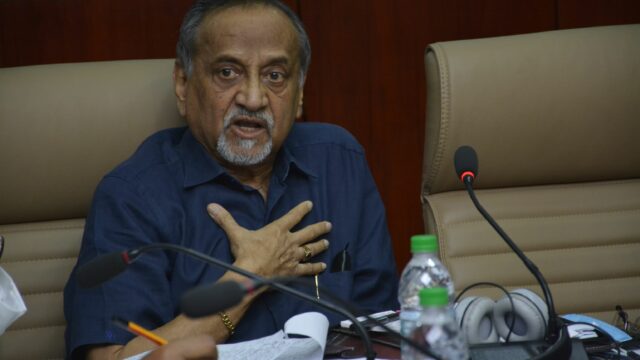
Dr. Pyakuryal, who is also a former Ambassador to Sri Lanka, remarked that some projects like West Seti Hydropower which started in the 1990s are still incomplete, adding that such slackness in work keeps the financial resources that could be used in other sectors stuck for a long time.
Linking Sri Lankan economic collapse to the failure in identifying the right project and also the failure in putting the national interest first, Prof Dr. Pyakuryal said that Sri Lanka’s choice of a high-interest loan of six percent discarding the grants and soft loans of some groups resulted in the failure of the state.
“A wise businessman doesn’t invest in the construction of a house as it freezes a big amount of money which he could mobilize for business,” he said, adding, “So-called national pride projects declared so without substantive research need re-consideration now.”
He sought serious consideration at the increasing trade deficit and mentioned that the trade deficit has reached the national budget amount.
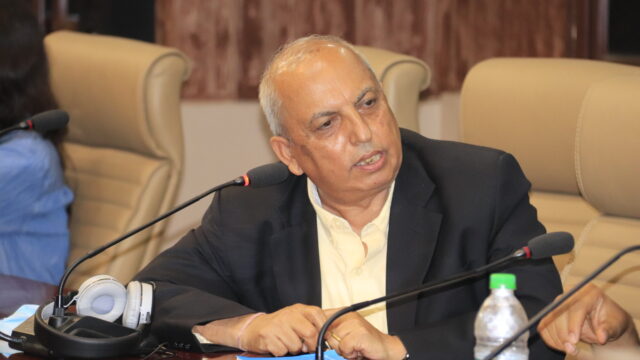
Taking part in the interaction Professor Dr. Govinda Nepal opined that the cause of the loss of credibility deserves consideration as the countries which used to offer grants have stopped so and have started giving priority to loans.
“We have to critically analyze our donors like China, Japan, and the USA and their investment based on historical evidence,” he said, adding, “They offered grant help putting Nepal’s interest at the center due to the then leadership.”
Prof. Dr. Nepal said that the donor countries’ overt advocacy for their interest in our country shows our poor diplomacy and leadership.
He said that the fate of the country could not be made better unless transparency is ensured everywhere, especially in the agreements, and demanded transparency in the BRI deal that Nepal has signed.
Analyst Saroj Mishra stated that although our formal economy seemed to inch close to doomsday as in the Sri Lankan case, our informal economy which is running underground has been still strong, and this can prevent the country from collapsing provided acted wisely.
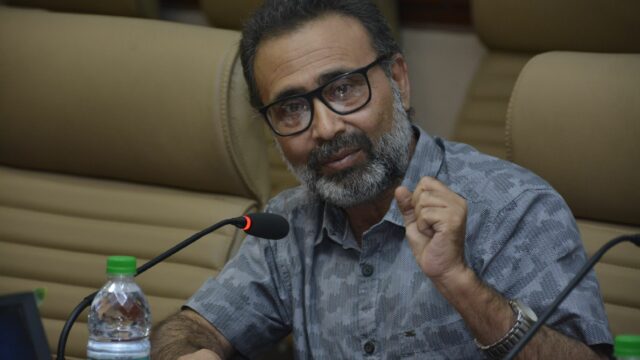
Citing the instances of Japan’s conversion of loans given to Nepal into grants, he asked to reprioritize the donors and abstain from taking high-interest loans from a country like China.
“BRI is not in our interest and should not be our priority. Therefore, taking a high-interest loan for another country’s long-term strategy will be fatal for our economy and people,” Mishra warned.
Citing the example of Chinese support in the Durbar High School renovation, he said that in most Chinese projects, Nepali manpower is not used.
Mishra opined that the government should be confined to the role of facilitator and let the private sector invest in the infrastructure sector under the private-public partnership (PPP) model.
According to him, Nepal should put the projects like Arun-3 Hydropower or Pancheshwor Multipurpose project rather than the least productive talk on Kerung-Kathmandu railways.
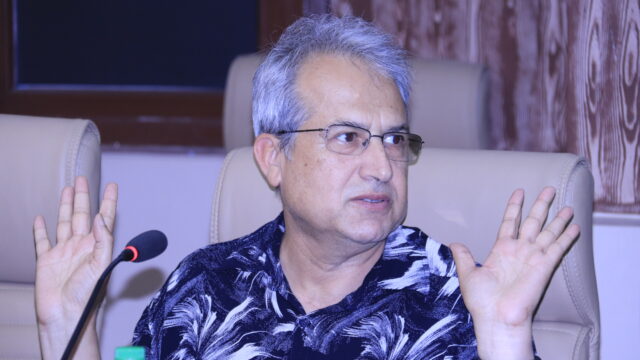
Foreign affairs expert and analyst, Arun Subedi said since BRI projects lack transparency, Nepal should think beforehand to avert any unfortunate circumstances in the future.
Entrepreneur Gyanendra Lal Shrestha remarked that the core problem lies in the selection of projects.
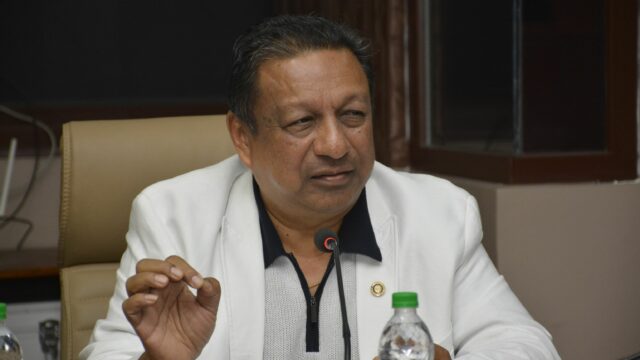
“Selecting the wrong projects just for propaganda mongering and election concern never puts the national interest at the front,” he said, adding, “We have to put our agenda as per the national interest.”
He shared that the trade deficit of 1.7 trillion shows we are heading towards difficult days provided we do not act on time.
“Unless we make strict regulations, it is difficult to control deficit, errors on pre-requisite selection might turn fatal to the country,” Shrestha said.
Presenting the cost analysis and the price each passenger has to pay provided the high-sounding Kathmandu-Pokhara railway is constructed, he said the passengers have to pay Rs 26,000 per person if it is executed as proposed.
He also opined that BRIs projects were strategic for China.
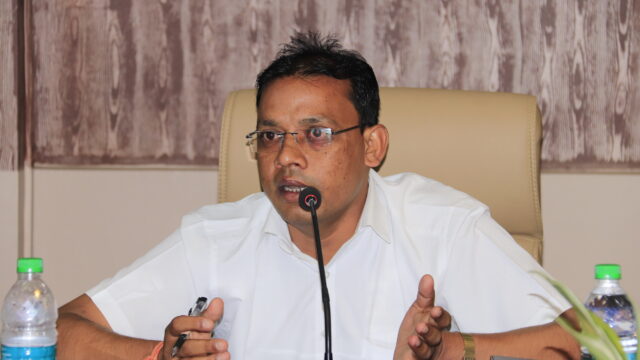
Ganesh Mandal, Coordinator of Madesh Civil Society, said implementing the BRI projects will increase debt besides undermining Nepal’s sovereignty.
“We need to be clear that Nepal would fall into a debt trap in the long run,” he warned.
Shedding light on the fact that BRI has been an ambitious project aiming to connect nearly 60 percent of the world population, analyst Kiran Poudel said that Nepal needs to set its priorities considering national interests rather than going for others.
He remarked that although Nepal signed in BRI in 2017 and put forward nine projects under it, no progress has been made in this regard to date.
Poudel said that the project lacks transparency, a must for the execution of ambitious projects in the countries like Nepal.
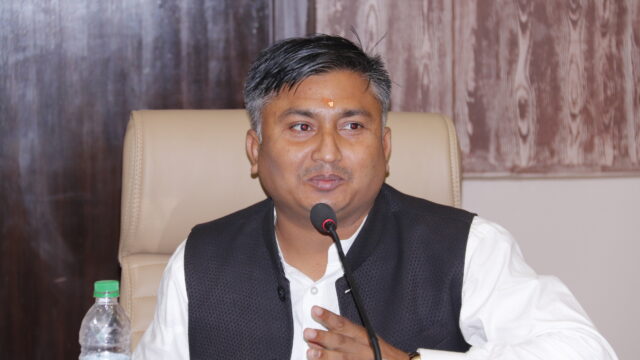
Chairman of Rastriya Ekata Abhiyan, Binay Yadav expressed skepticism over Chinese interest in awarding expensive loans to poor countries like Nepal.
He demanded media auditing and social auditing of the Chinese projects so that the country can safeguard Sri Lanka’s fate. He predicted that media auditing would show that Chinese projects as they have come of late are against national interest.
Analyst Devesh Jha urged the government to reconsider the priorities and abstain from spending on the high-sounding yet less rewarding projects like railways to link to China.
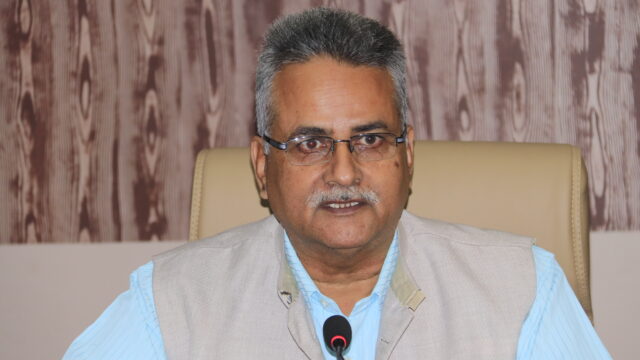
He also objected to the BRI projects citing their lack of transparency.
Taking part in the interaction, media personality Sarita Gyawali said that transparency is needed in all projects Nepal signs and asked the stakeholders to think about the ways to prevent the Sri Lankan fate of Nepal.


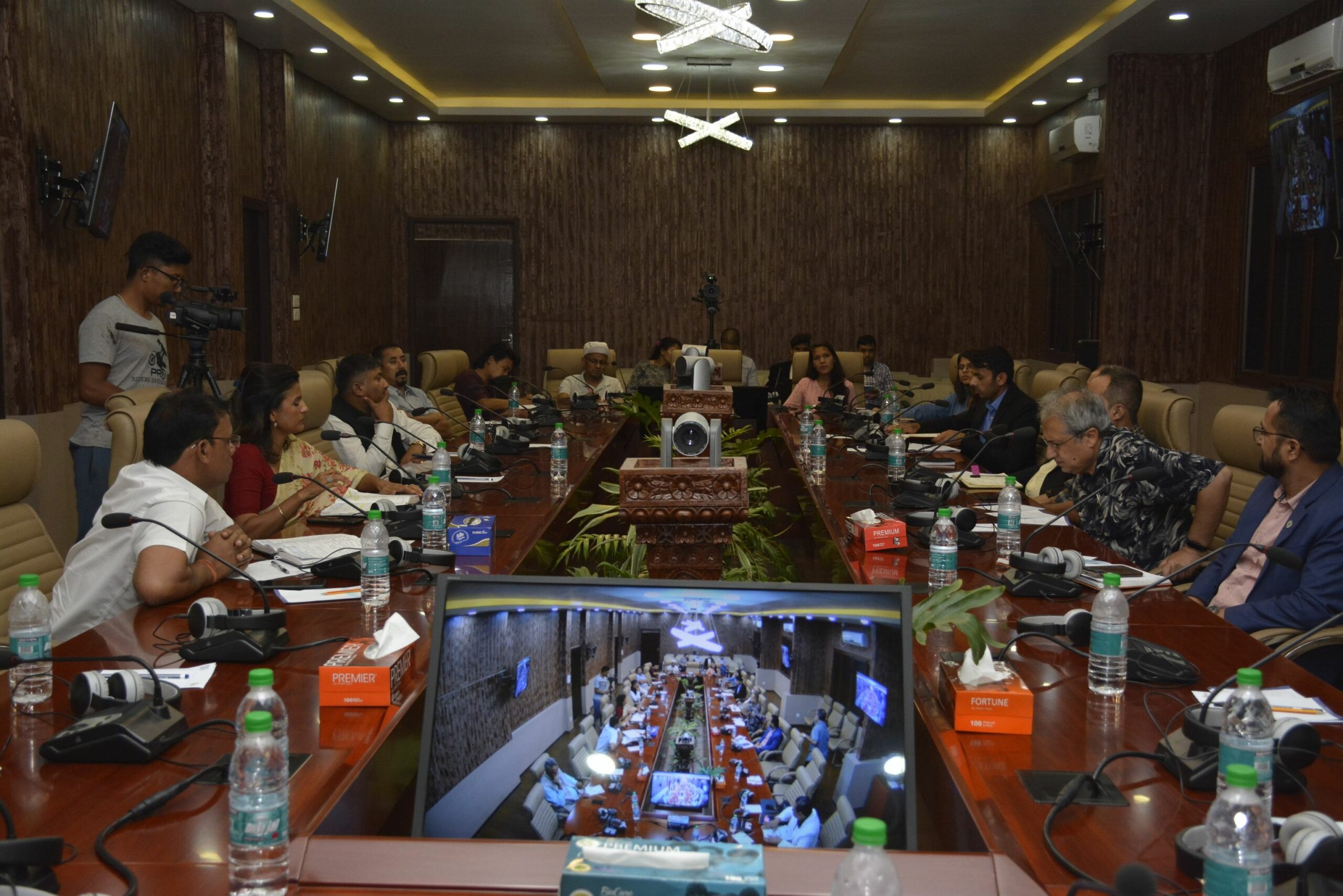






Comment